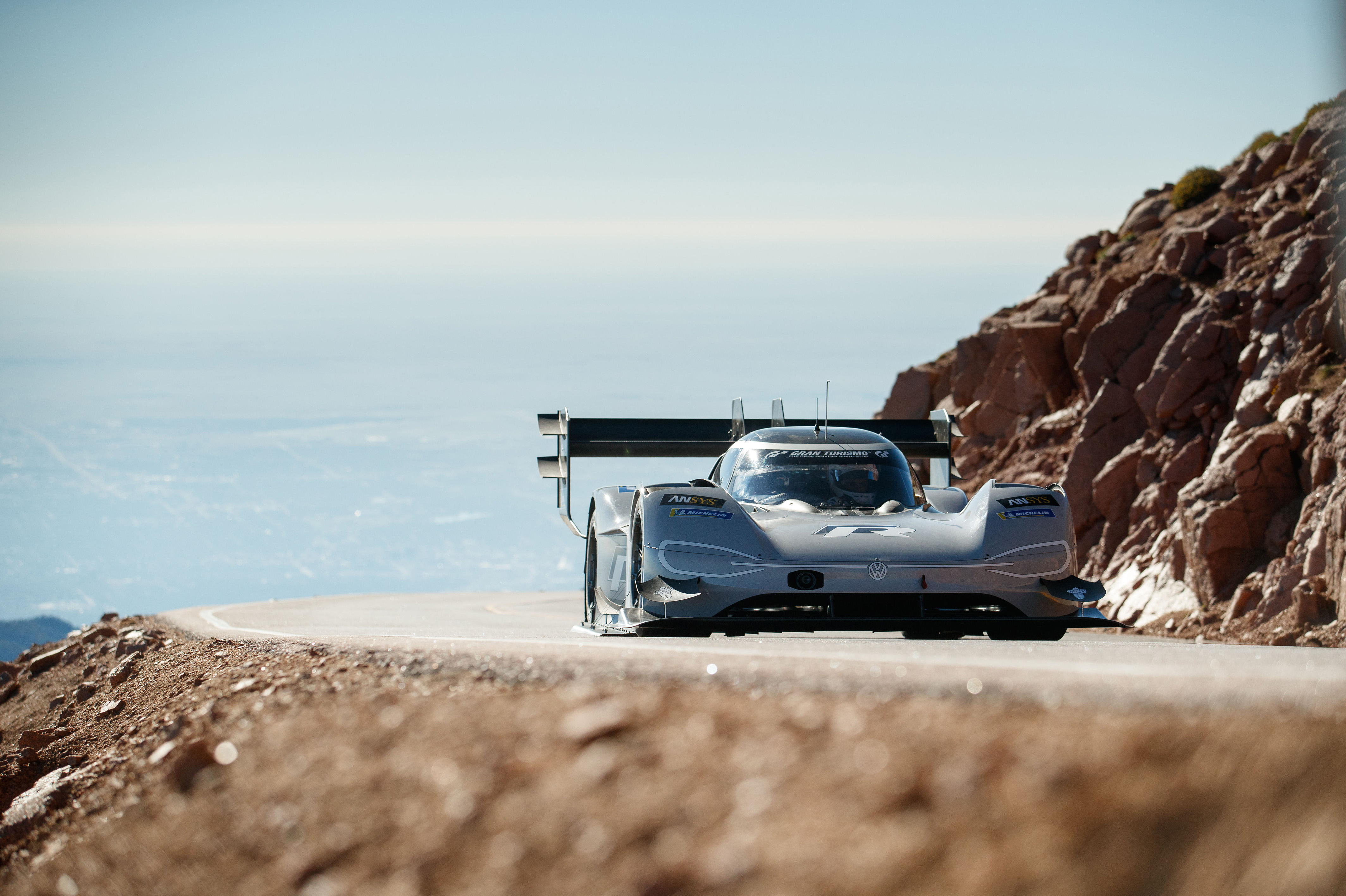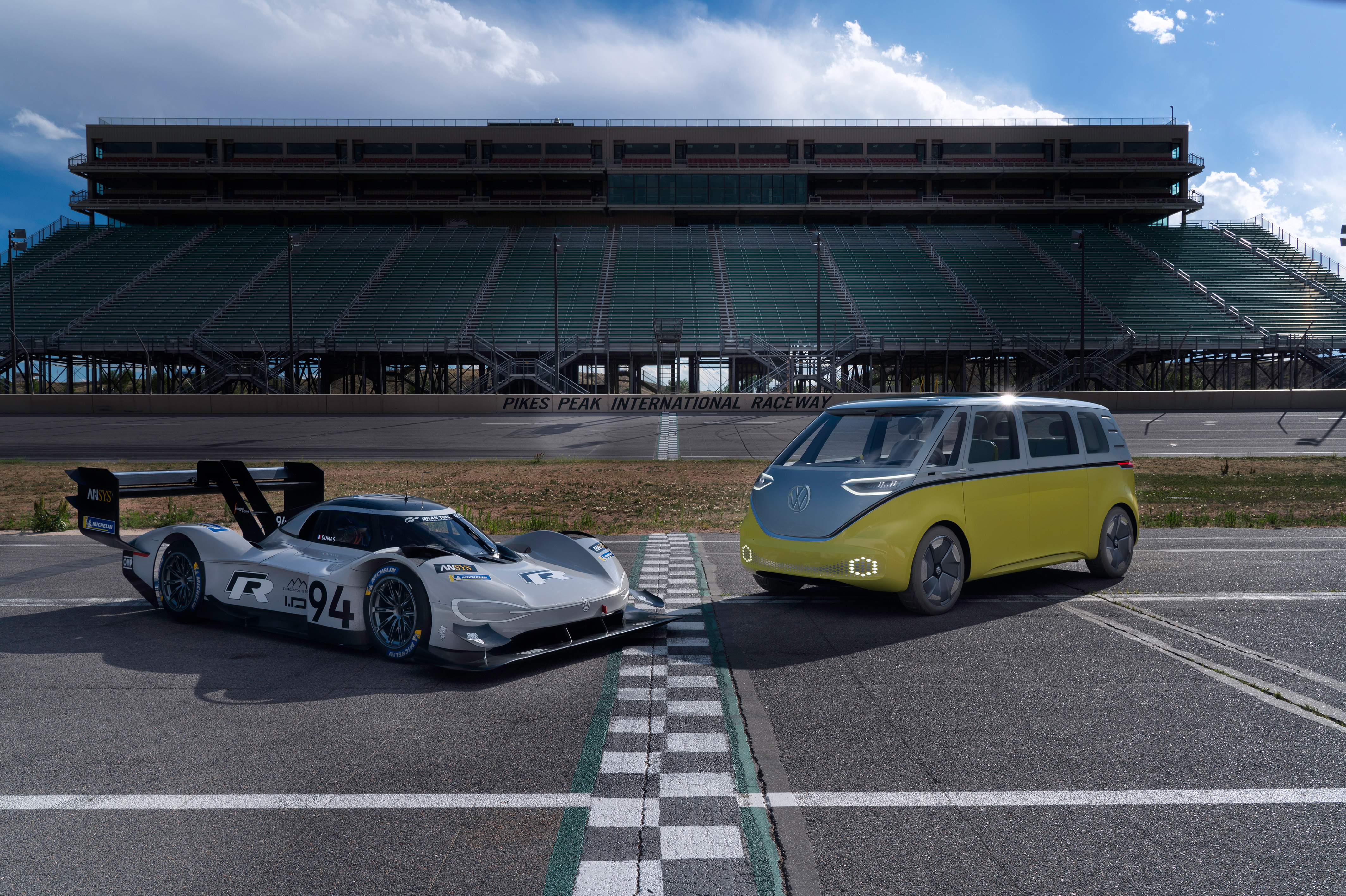Electric vehicles are proving that anything gas guzzlers can do, electric vehicles can do better. At least, that was certainly the case at the Pikes Peak International Hill Climb, where Volkswagen’s electric racing car not only broke the record for the fastest EV climb of the steep hill, but also smashed the overall record by completing the course in 7 minutes, 51.148 seconds.
The record was set by Romain Dumas, who drove the 500-kW I.D. R Pikes Peak to defeat a field that included cars boasting conventional drivetrain technology. Dumas broke the previous overall record set in 2013 by a whopping 16 seconds, proving that EV technology has certainly come a long way in the last several years.
“The I.D. R Pikes Peak is the sporty forerunner of Volkswagen’s I.D. family. Today, we saw what this technology is capable of,” said Dr. Frank Welsch, member of the Volkswagen Passenger Cars brand’s board of management. “With a combination of outstanding engineering skills, passion, and commitment, the team has managed to create a fantastic racing car in just eight months. The Volkswagen I.D. R Pikes Peak has now set the fastest time in the history of this hill climb, which spans more than 100 years — that speaks volumes for electric mobility.”
The Pikes Peak International Hill Climb is no easy course. It spans just under 20 kilometers (about 12.5 miles) and features 156 corners and only one attempt at victory. This latest win marked Dumas’ fourth No. 1 finish, but the first for the I.D. R Pikes Peak EV. Volkswagen notes that the car is specifically built to handle the demands of hill climbs, combining minimum weight, maximum downforce, and maximum power. Even with its battery cells, the I.D. R Pikes Peak weighs in at just over 2,400 pounds.
Volkswagen also implemented new charging technology for this groundbreaking EV, with the goal of charging the car as quickly as possible by expending as little energy as possible. The car is fueled by glycerol, which combusts with effectively no dangerous exhaust fumes or residue. But perhaps most impressive was the amount of time (or lack thereof) required to build the I.D. R Pikes Peak. From start to finish, the EV was developed and constructed in just 250 days.
“The I.D. R Pikes Peak is the most impressive car I have ever driven in competition,” Dumas said. “The electric drivetrain means that many things are different and I learned a lot during the project. Not only did we get the desired result, but the team spirit was also spot on. I am incredibly proud to have been a part of it.”











